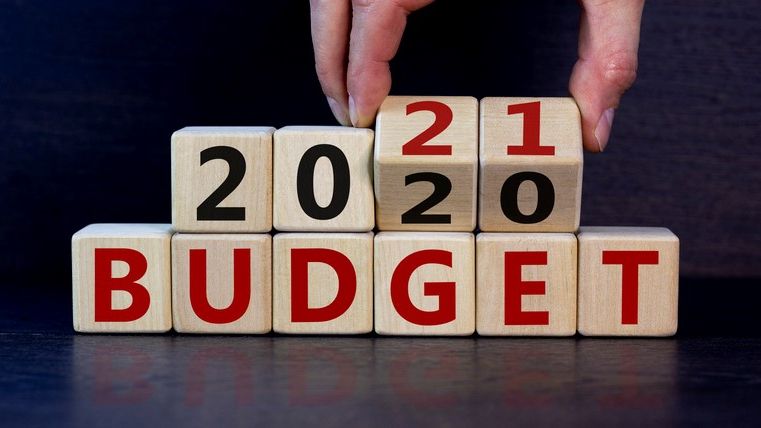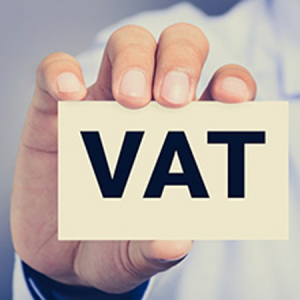We set out our summary of the Chancellor’s Budget on 3 March 2021. He announced the extra cost to the economy of the Coronavirus crisis is £350 billion, the economy will shrink by an unprecedented 10% and unemployment has increased by 700,000 and has not yet peaked. He was positive though about the expected acceleration of growth once lockdown has fully ended and expects a good level of recovery by mid 2022. He reported the extension of Coronavirus support schemes and how he will start paying down the enormous level of debt incurred due to the pandemic. That will be achieved mainly by a large increase in corporation tax, delayed for two years and tapered so only companies with profits of £250,000 and above will pay the full new rate. He pledged though not to raise the rates of income tax, National Insurance and VAT.
FURLOUGH SCHEME EXTENDED TO 30 SEPTEMBER
The current version of the furlough scheme that started on 1 November 2020 which was scheduled to end on 30 April 2021 has been extended to 30 September 2021. The 80% that employees receive is unchanged but there will be a phased requirement though for employers to contribute to the furlough pay. The furlough grant for May and June will remain at 80% of the employees’ usual pay for hours not working but it will then be limited to 70% for July and then 60% for August and September. That means a contribution by the employer of 10% of the furlough pay from July and 20% for August and September.
In addition to the 10% and 20% contributions employers will continue to be responsible for paying employers national insurance and pension contributions on the full amount being paid to employees.
SELF-EMPLOYED INCOME SUPPORT GRANTS ALSO EXTENDED
In line with the further extension of the furlough scheme for employees, the chancellor has also set out further support for the self-employed. We had been waiting for the details of the calculation of the fourth SEISS grant covering the period to 30 April and we now know that the support will continue to be 80% of average profits for the reference period capped at £2,500 a month
and can be claimed from late April. There will then be a fifth SEISS grant covering the 5 months to 30 September.
Newly self-employed also now included
The chancellor has extended the scheme to include traders who commenced self-employment in 2019/20, provided they had submitted their 2019/20 tax return by 2 March 2021.
Conditions for the fifth grant will be linked to a reduction in business turnover. Self-employed individuals whose turnover has fallen by 30% or more will continue to receive the full grant worth 80% of three months’ average trading profits, capped at £2,500 a month. Those whose turnover has fallen by less than 30% will receive a 30% grant, capped at £950 a month. We are awaiting further details of this fifth grant.
CORPORATION TAX RATES TO INCREASE
TO 25% BUT NOT FOR ALL COMPANIES
The UK corporation tax rate paid on limited company profits will increase from 19% to 25% from 1 April 2023 where profits exceed £250,000. However, where a company’s profits do not exceed £50,000 the rate will remain at the current 19% rate and the new rate will be tapered for companies with profits between £50,000 and £250,000 per annum.
However, that increase could be offset by taking advantage of some new tax-breaks, designed to stimulate growth by encouraging investment in equipment (a new super-deduction) and an enhanced carry back of losses.
SUPER-DEDUCTION FOR INVESTMENT IN NEW EQUIPMENT
In order to encourage companies to invest in new capital equipment the chancellor announced a radical new “super-deduction” of 130% where they invest in new plant and equipment. This would mean that when a company buys plant, equipment, commercial vehicles costing say £10,000 they would qualify for a £13,000 deduction in arriving at business profits. The new deduction will run for two years from 1 April 2021.

Note it will not be available for motor cars. Certain assets such as fixtures in buildings will only qualify for 50% relief in the first year instead of the normal 6% writing down allowance.
THREE YEAR CARRY BACK OF TRADING LOSSES
Many businesses will have made a loss in the last year as a result of the Coronavirus pandemic and the difficult trading environment.
Trading losses can normally only be set against profits of the preceding accounting period or previous tax year in the case of unincorporated businesses.
The chancellor has announced that the carry back period will be temporarily increased to three years thereby enabling the business to obtain a tax refund. For companies this will apply to loss making accounting periods ending in the period 1 April 2020 to 31 March 2022. For unincorporated traders, the extended loss relief will apply to losses incurred in 2020/21 and 2021/22.
The amount of trading losses that can be carried back to the preceding year remains unlimited for companies. After carry back to the preceding year, a maximum of £2,000,000 of unused losses will then be available for carry back against profits of the same trade of the previous 2 years. There will be a similar £2,000,000 limit for unincorporated businesses.
NO CHANGES TO INCOME TAX RATES AND PERSONAL ALLOWANCE FROZEN
The basic rate of income tax and higher rate remain at 20% and 40% respectively, and the 45% additional rate continues to apply to income over £150,000
The personal allowance and higher rate threshold have been increased in line with inflation to £12,570 and £50,270 respectively for 2021/22. These thresholds will then be frozen until 2025/26, which will amount to a tax rise possibly yielding an extra £19 billion for the government.
Dividends continue to be taxed at 7.5%, 32.5% and then 38.1%, depending upon whether the dividends fall into the basic rate band, higher rate band or the additional rate band. Note that the first £2,000 of dividend income continues to be tax-free.
NATIONAL INSURANCE RATES
The national insurance contribution (NIC) rates and bandings were announced 16 December 2020 to take effect from 6 April 2021. Employees and the self-employed will not pay national insurance contributions (NIC) on the first £9,570 of earnings for 2021/22, an increase of £1 a week. The employee contribution rate continues to be 12% up to the Upper Earnings limit £50,270, with the self-employed paying 9% on their profits up to the same level. Note that employer contributions will apply to earnings over £170 per week, £8,840 per annum which is also a £1 a week increase.
5% VAT RATE FOR FOOD, ATTRACTIONS AND ACCOMMODATION EXTENDED
The reduced 5% rate of VAT will continue to apply to supplies of food and non-alcoholic drinks from restaurants, pubs, bars, cafés and similar premises across the UK until 30 September 2021.
The 5% reduced rate of VAT will also continue to apply to supplies of accommodation and admission to attractions across the UK. From 1 October until 31 March 2022 the rate will be set at 12.5% and will then revert to the normal 20% from 1 April 2022.
VAT REGISTRATION LIMIT FROZEN AT £85,000 UNTIL 1 APRIL 2024
The VAT registration turnover limit will remain at £85,000 for a further two years.
MAKING TAX DIGITAL EXTENDED TO ALL VAT REGISTERED BUSINESSES FROM 1 APRIL 2022
The government has confirmed that the requirement to maintain accounting records in a digital format and submit the data to HMRC electronically will be extended to all VAT registered businesses from 1 April 2022 regardless of the level of taxable supplies.
NEW GRANTS FOR HIGH STREET BUSINESSES AND HOSPITALITY SECTOR
Businesses forced to close due to the Coronavirus lockdown will be eligible to apply for grants of up to £18,000 depending upon the rateable value of their business premises. Pubs, restaurants, hotels, gyms and hairdressers will be eligible for a grant of up to £18,000 per premises whilst non-essential retail businesses will be eligible to apply for a grant up to a maximum of £6,000.
The grants are intended to be a contribution towards the fixed costs of the business during the period that they have been unable to trade normally.
The government will also continue to provide eligible retail, hospitality and leisure properties in England with 100% business rates relief from 1 April 2021 to 30 June 2021. This will be followed by 66% business rates relief for the period from 1 July 2021 to 31 March 2022, capped at £2 million per business for properties that were required to be closed on 5 January 2021.
Unfortunately, the “Eat out to Help Out” scheme will not be reintroduced this Summer.
NEW RECOVERY LOAN SCHEME
The government have already announced a longer repayment period for “Bounce-back” and CBIL loans. From 6 April 2021 a new Recovery Loan Scheme will provide lenders with a guarantee of 80% on eligible loans between £25,000 and £10 million to give them confidence in continuing to provide finance to UK businesses. The scheme will be open to all businesses, including those who have already received support under the existing COVID-19 guaranteed loan schemes.
STAMP DUTY LAND TAX CUT EXTENDED
Last March in order to stimulate the housing market the Chancellor announced a temporary cut in Stamp Duty Land Tax for home buyers across England and Northern Ireland which was scheduled to last until 31 March 2021.
This has now been further extended until 30 June 2021 so that transactions in progress will continue to benefit from the reduced rates.
As a transitional measure from 1 July 2021 the Nil Rate Band of Residential SDLT in England and Northern Ireland will then decrease to £250,000 for 3 months until 1 October 2021 when it will revert to £125,000 for purchases completed on or after that date. There has been no change to the SDLT rates above the Nil Rate Band. The 3% supplementary charge for second and subsequent homes in England and Northern Ireland will continue to apply.
Note that there are different rates of tax on property transactions in Scotland and Wales as such taxes have been devolved in those countries.
95% MORTGAGE SCHEMES
Another measure announced to stimulate the housing sector is a new 95% mortgage scheme guaranteed by the government that will mean that people buying a house will only need a 5% deposit where the purchase price is no more than £600,000.
APPRENTICESHIP SCHEMES EXTENDED
The current apprenticeship scheme will be doubled with payments of £3,000 to employers in England for each new apprentice they hire aged under 25 and continue to pay the employer £1,500 for each new apprentice they hire aged over 25. The schemes will now run until 30 September 2021.
Starting in January 2022 there will be a new “flexi-job” apprenticeship which will allow individuals to work for more than one company via an agency.
The “Kickstart” Scheme announced in the Summer 2020 Plan for Jobs will continue to be available for the 2021/22 academic year to create 6-month work placements aimed at those aged 16-24 who are on Universal Credit and at risk of long-term unemployment. Employers who provide trainees with work experience will continue to be funded at a rate of £1,000 per trainee.
EIGHT NEW FREEPORTS ANNOUNCED
In eight locations around England there will be generous tax breaks to encourage businesses to locate there. These tax breaks include an exemption from SDLT, 100% first year allowances on plant and a 10% per annum structures and buildings allowance.
Bayliss Ware
March 2021



